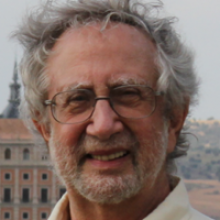What Is It
What is the relationship between the mind and the brain? Monists believe that there is only one substance or property in the Universe, be it physical (Materialists) or mental (Idealists). But Dualists, like the 17th Century French philosopher Rene Descartes, hold that mental stuff exists side by side with physical stuff. Can this view be defended, in light of modern science? John and Ken probe the mind-body with David Rosenthal from City University of New York, author of Consciousness and Mind.
Listening Notes
In this episode, John and Ken talk about Dualism, a perennial movement in philosophy of mind. When we think about our brains, it can be rather difficult to figure out how any of that brain activity can give rise to experience. Back in the 17th century, the great scientists and philosopher Rene Descartes held that the mind is made of something altogether different from the rest of the physical world. This view is called “dualism,” and has retained a following through the present day.
This view can seem terribly unscientific though, and over the past few hundred years materialistic views, holding that there is fundamentally only one kind of ‘stuff’ have become more prevalent. Then again, some philosophers argue that even though materialism may seem very attractive, the problem remains that there is no way to explain experience in purely physical terms. But how should we make sense of this problem?
David Rosenthal, a prolific philosopher of mind from City University of New York, joins John and Ken to help them sort through these issues. David’s not a dualist himself (he prefers to explain conscious experience in terms of a structure of higher order thoughts), but his insights help propel the discussion through the stratosphere. Callers bring up some good points, and the banter is as sharp as always. Is there room for free will in a purely physical world? Maybe what makes this so difficult is that we developed our concepts to deal with thing—perhaps we just don’t have the proper cognitive tools to make sense of how our subjectivity relates to the world.
- Roving Philosophical Report (seek to 5:55): Zoe Corneli, the Roving Philosophical Reporter comes interviews David Chalmers, one of the most outspoken living dualists. To him, it’s all about experience, and he just doesn’t see how materialism will ever be able to explain it. We can make sense of causal aspects of consciousness, but it seems like we can never explain subjectivity. What do you think of these notions?
- 60-Second Philosopher (seek to 50:05): Ian Shoales, the 60 Second Philosopher gives us the fastest history philosophy of mind you’re likely to hear anywhere. Before the scientific revolution, dualism seemed like a pretty keen idea. Once we started developing modern science and learned more about the brain, it seems easier and easier to reduce the mind to the brain.
